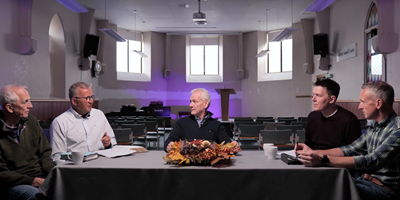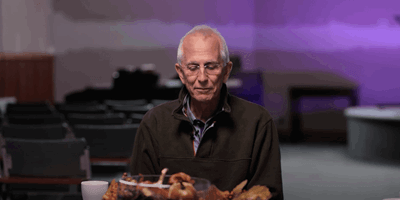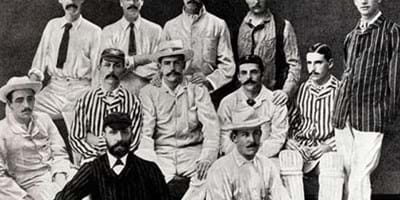No one is perfect
Without making any judgement on the wisdom or otherwise of the actions of the Princess of Wales in this particular case, the underlying question is: “Why should we ever want to edit a photograph?” The simple answer is that we are not satisfied with what it shows. Whether the problem is with the photographer, the camera, the lighting or the subjects, the fact is that the picture is not perfect in our eyes. Now, let’s assume for a moment that the photographer is an expert, the camera is top of the range, the lighting is ideal and the subjects are models of beauty. Why might there still be a temptation to perform some subtle edits here and there? Because no one is perfect. We live in a world riven with imperfection. Everything is flawed.
What caused the problem?
It wasn’t always that way. God created a perfect world:
“Then God saw everything that He had made, and indeed it was very good” (Genesis 1:31).
So what went wrong? Despite being made in the image of God and living in a perfect environment, the first humans failed in the one test God gave them. They chose to love themselves more than the God who had created them and given them everything, including friendship with Him. The garden of Eden was full of “trees that were beautiful and that produced delicious fruit” (2:9 NLT) but the tree of the knowledge of good and evil, from which Adam had been forbidden to eat, had an additional appeal; Eve “wanted the wisdom it would give her" (3:6 NLT). She picked some fruit and ate it. Adam ate some, too. And by that one act of disobedience, the world was plunged into ruin:
“. . . all creation was subjected to God’s curse” (Romans 8:20 NLT).
The desire to be perfect
Pride was at the heart of that first act of disobedience, and it is pride that is behind our desire to appear perfect. For one thing, we want a perfect image because we want to be accepted, desired, and even adored by other people.
Yet, while we may sometimes succeed in looking good before others, God is not so easily fooled. He humbles the proud, and in His sight we are “sinners”, at a distance from the Holy One and deserving His condemnation:
“. . . because you are stubborn and refuse to turn from your sin, you are storing up terrible punishment for yourself. For a day of anger is coming, when God’s righteous judgment will be revealed” (Romans 2:5 NLT).
Is there a solution?
Clearly, editing a photograph of myself doesn’t change me. Nor, for that matter, does cosmetic surgery. It only affects the shell I inhabit. But the Bible sets out a solution that deals with the inner problem; a way to escape judgement from God and the slavery of desperately wanting to improve our “image”.
Jesus Christ, the Son of God, came from heaven and took on human form. He lived a perfect life and in His death and resurrection made possible restoration of the friendship with God that Adam and Eve had forfeited:
“Christ . . . suffered once for sins, the righteous for the unrighteous, that he might bring us to God” (1 Peter 3:18 ESV).
Of course, enjoyment of the provision made by Christ’s death and resurrection is dependent on us confessing our sin and turning from every other way we may have tried to satisfy God, to trust in Christ alone.
“Nor is there salvation in any other, for there is no other name under heaven given among men by which we must be saved” (Acts 4:12).
A new “look”
But there is more. When we trust in Christ as Saviour and Lord, there is no longer any need for concern about how we appear in the eyes of others. We have been made new:
“Therefore, if anyone is in Christ, he is a new creation; old things have passed away; behold, all things have become new” (2 Corinthians 5:17).
Our identity is now “in Christ”, the One who died for us, and who lives for us in heaven. With the restoration of our relationship with God comes the assurance that we are accepted by Him and secure forever in His care, no matter what others may think of us.































